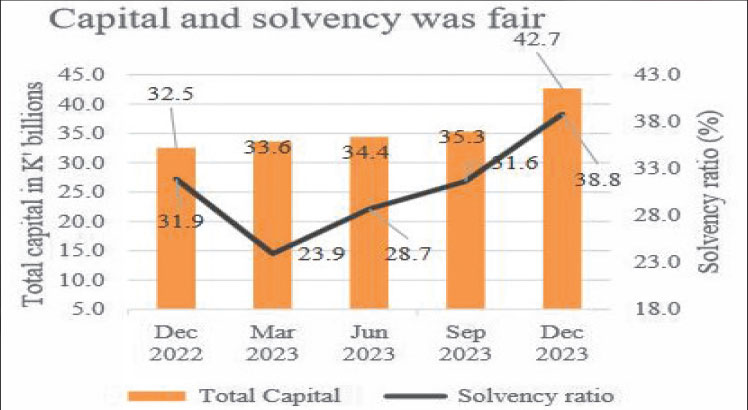Economic woes dampen insurance liquidity—report
The country’s economic challenges continue to affect the insurance sector’s liquidity as players struggle to access premiums from customers who have experienced a considerable reduction in disposable income.
The Reserve Bank of Malawi said in its Financial Stability Report for December 2023 that only two of eight general insurers met the recommended liquidity ratio as of December 2023.
Reads the report in part: “The liquidity of the general insurance sector improved, but remained unsatisfactory at 84.4 percent.

“Nevertheless, the improved liquidity ratio is still below the required regulatory requirement of 100 percent.”
The report further says insurance receivables still constituted 53.2 percent of the sector’s total capital, which is higher than the recommended limit of 50 percent exposing it to counter-party risks.
“The industry is also exposed to credit and liquidity risks that could lead to potential credit losses and negatively impact cash flows,” reads the report.
The RBM attributes the sector’s weak liquidity to high insurance receivables, resulting from late premium payments which compromise insurers’ ability to fulfill their policy obligations.
Apart from liquidity, the sector’s capital and solvency risks are also moderately high.
Reacting to the report, Insurance Institute of Malawi president Hastings Kapesa attributed the liquidity challenges to harsh economic environment, which has affected the ability of customers to pay normal premiums.
He said: “The economic hardships resulted in most customers either not insuring their property or opting for short-term premiums like three months instead of one year, in some instances. Some are resorting to third party cover.
“We have also seen most individuals shifting from comprehensive insurance in the instance of vehicles and all these are signs of eroded disposable income of people which affect insurance business.”
Chartered insurer Eric Chapola, who is former chief executive officer of Nico Life Insurance Company, said the main challenge affecting the sector is the tough economic environment and climate change which are affecting profitability and threatening the capacity to settle huge claims.
“Climate change-related disasters that are happening at a time people’s disposable income is already eroded with weaker exchange rate, is resulting in huge claims that affected people who want insurance companies to pay,” he said.
Despite efforts to increase insurance penetration, the rate has remained between 2.5 and three percent, according to RBM figures.





